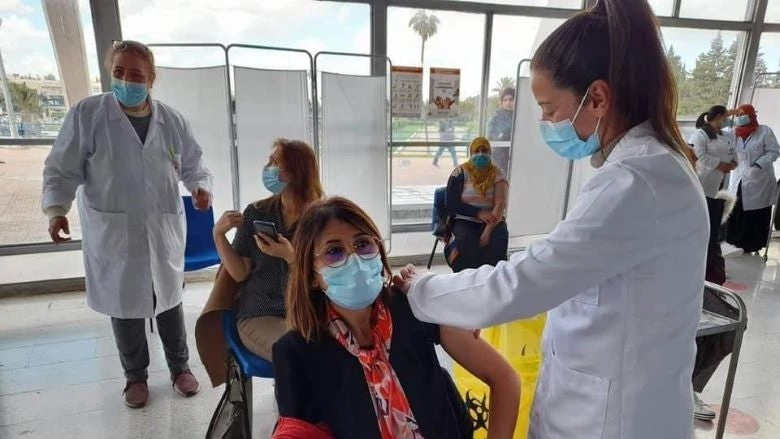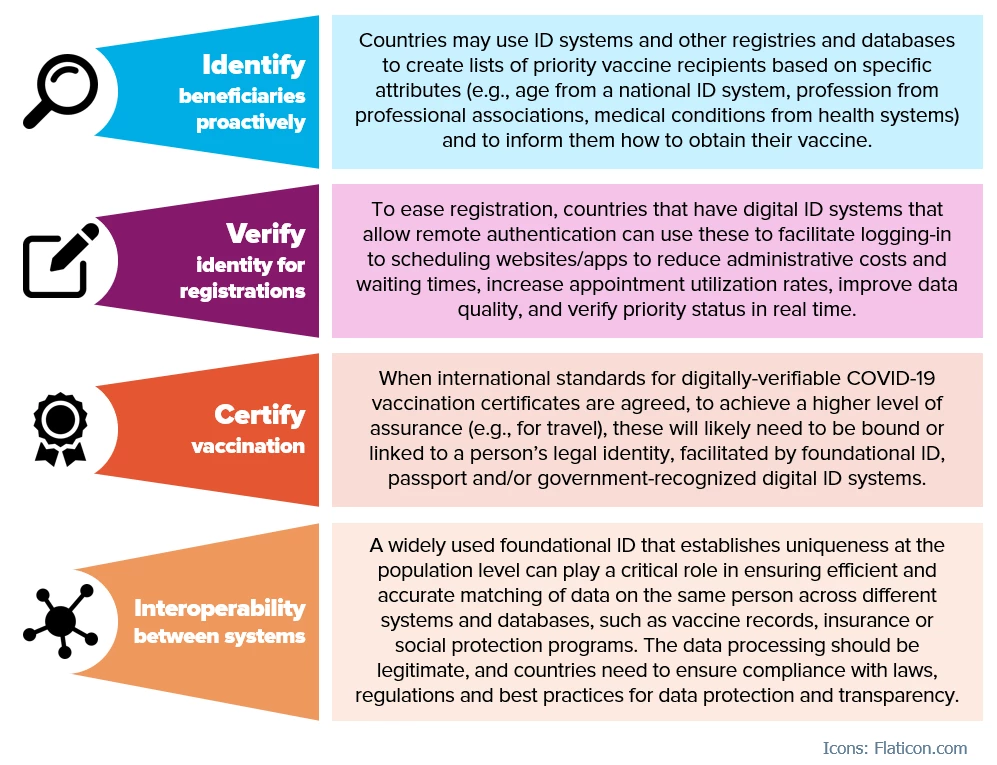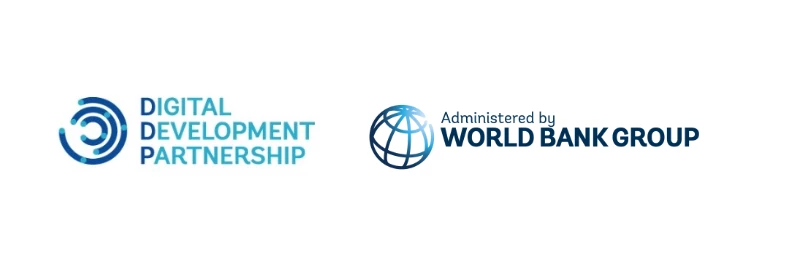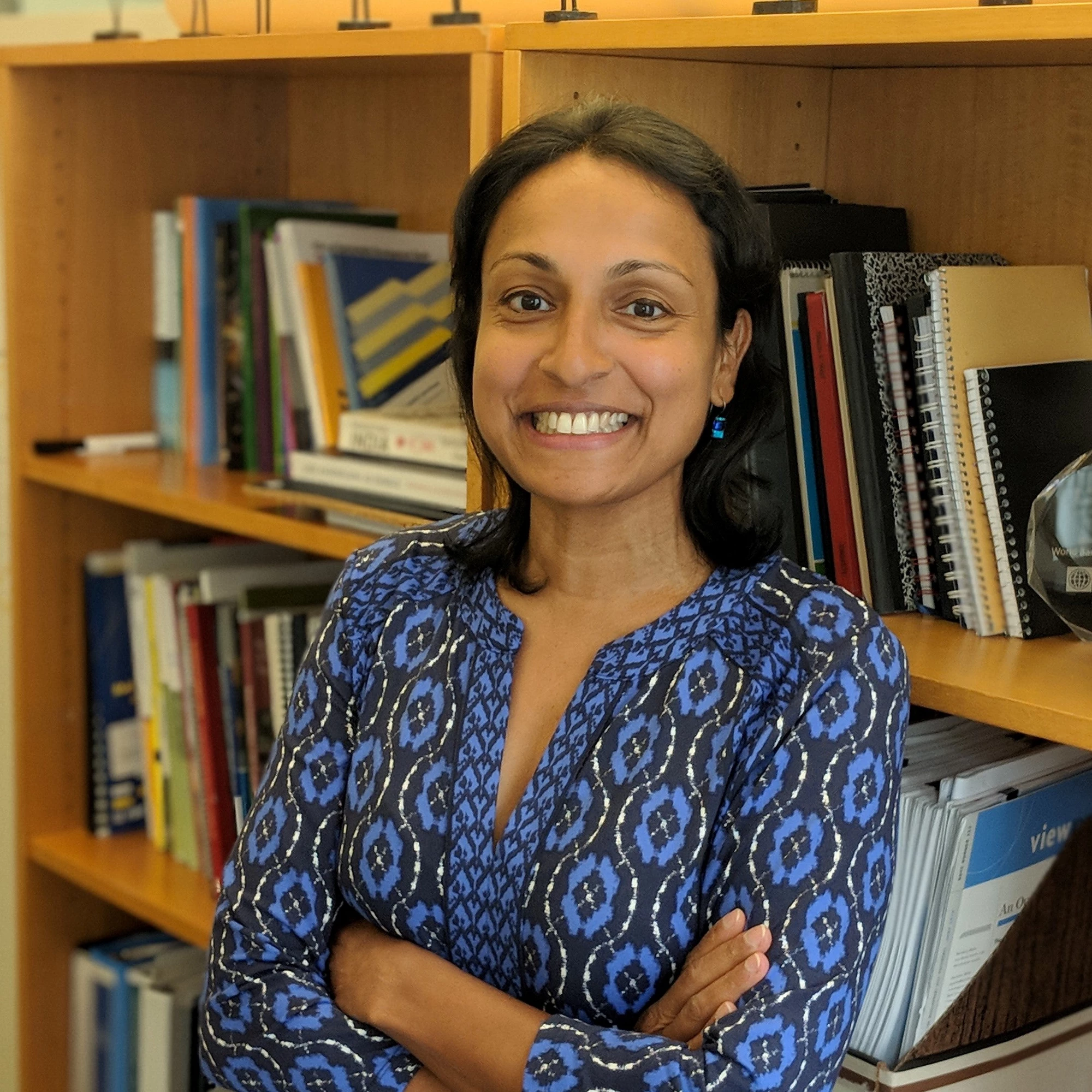This blog is part of a series on digital safeguards and enablers for COVID-19 vaccine delivery.
Plenty of practical learnings are coming from the countries that have launched their COVID-19 vaccination programs. An important one is that the availability of reliable and verifiable personal data — on demographics, employment, health status, and other metrics that might determine prioritization — makes the registration of beneficiaries much easier for both the public and government. Coupled with strong data protection and information security, this leads to equitable, efficient and transparent delivery, which generates momentum and boosts confidence. However, the reality is that many countries do not have adequate data systems, governance and safeguards in place, and are therefore scrambling to build these from the ground up — with mixed success so far.
One of the key functional requirements that countries are looking for is the unique identification of vaccine beneficiaries at a national scale. It is not just about finding and verifying who is eligible, but also how to contact them, how to allow them to make and manage appointments, how to link doses and their vaccine status to medical records, and potentially how to associate the beneficiary with an insurance or social protection program for financing purposes. Furthermore, for (paper or digital) vaccine certificates to be trusted and secure against fraud, they should somehow be linkable with the holder’s legal identity.
Countries will have a multitude of ID systems and population databases that can help. Some countries such as the UK can use their universal and digitized health insurance registries. Other countries may try to reuse data from different sources — such as employers and local governments. Most countries — especially developing ones — must look to alternatives because their databases are not complete, accurate nor standardized enough (as revealed when countries tried to use databases to rapidly scale up or introduce new emergency social assistance programs last year).
Under certain conditions, foundational ID systems (such as national IDs and population registries), and government-recognized digital IDs may offer an effective and scalable solution for countries starting from scratch. These conditions are essentially the ten Principles on Identification for Sustainable Development and in particular that coverage is universal (or, if near-universal, easily accessible for everyone who is unregistered), that it is secure and implements best practices for data protection, and that it can interface with other digital platforms, such as vaccine information management systems and immunization registries. Establishing these linkages with the health sector are also an opportunity to support long-term improvements to health systems.
Some examples already seen include:
- Denmark developed a website for self-booking appointments that uses NemID, the government-recognized digital ID that is linked to their civil registration number (CPR), which matches to their health record. A hotline is available for people who cannot use this service.
- India built the Co-WIN platform to orchestrate its vaccine rollout and are accepting the foundational ID (Aadhaar) or at least 11 other IDs for people to register on the app and manage appointments. The digitally verifiable vaccine certificates are linked to the recipient’s Aadhaar.
- Israel used the existing link between its national population registry and the health system to notify people to schedule appointments and to scale up its universal childhood immunization registry to manage deployment, which has been the fastest in the world. Chile has followed a similar path.
The decision on what ID systems to use for vaccine deployment — and how — must be based on whether this will enhance delivery and not hamper any person’s access. First and foremost, a specific ID should never be a requirement to receive a vaccine. There must always be alternatives and exception handling — such as for migrants, refugees, and people without any ID. Secondly, like all digital platforms, there must be non-digital and assisted options for people with limited digital capabilities, especially the elderly and persons with disabilities. Third, the use cases must adhere to local legal frameworks and best practices for data protection, such as data minimization and proportionality. In this regard, the use of digital vaccine certificates are an opportunity to implement privacy-enhancing approaches, such as zero-knowledge proofs, decentralized wallets, and verifiable credentials, which would be paradigm shifting for how data are used, re-used and validated.
This is an emerging space that the World Bank Group’s Identification for Development (ID4D) initiative is closely monitoring and assisting several countries to navigate as part of the Group’s broader support of digital platforms for the COVID-19 response and recovery. If countries can use ID systems and digital platforms well and inclusively — and mitigate the exclusion and data protection risks — this will not just help the vaccine deployment and healthcare, but will be transformational for how all services can be delivered and accessed in the future.
This work is supported by the Digital Development Partnership, administered by the World Bank. For more information or how you can receive assistance with these topics, please contact Digital4Vaccines@worldbankgroup.org







Join the Conversation